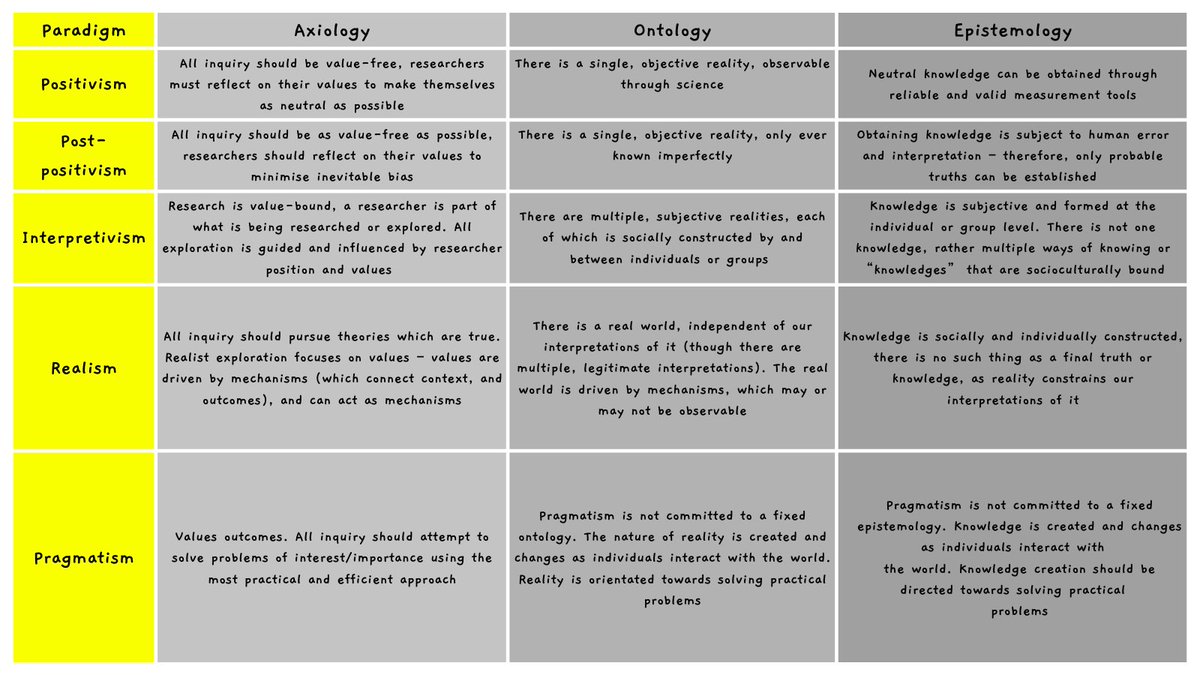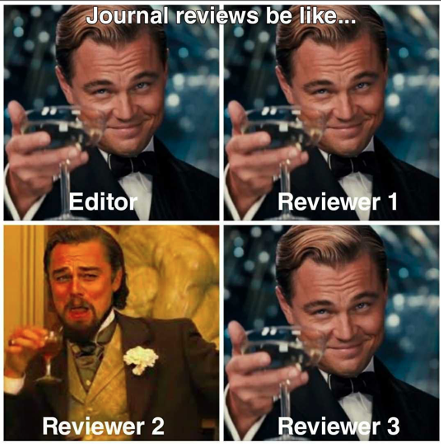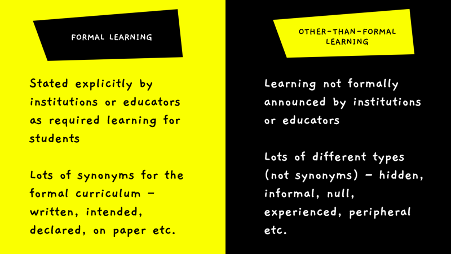I am slightly overwhelmed by all of the lovely comments on last week’s #MedEd #TheoryThursday thread. Thank you all for nerding out with me!!
Right, now on to PARADIGMS
What are paradigms, why are they important + what’s their relationship with theory?
🧵
Right, now on to PARADIGMS
What are paradigms, why are they important + what’s their relationship with theory?
🧵

Paradigms are assumptions, values, beliefs + practices that form distinct ways of viewing the world. They are usually shared by people in a community. They inform how we view + discuss reality and knowledge.. + this shapes how we try and find out about experiences/our environment 

Theories are not paradigms, and paradigms are not theories.
Theories help us explain the connections between what we observe.
Paradigms tell us how we might go about observing those connections in the first place.
Theories help us explain the connections between what we observe.
Paradigms tell us how we might go about observing those connections in the first place.
BUT paradigms influence how we view + use theory
Some theories are created within the distinctive ways of knowing of a certain paradigm. Though paradigms and theories are different, they are connected.
Paradigms are foundational lenses through which we create/view/use theory
Some theories are created within the distinctive ways of knowing of a certain paradigm. Though paradigms and theories are different, they are connected.
Paradigms are foundational lenses through which we create/view/use theory
We can add paradigms to our pyramid from last week. (I inverted the pyramid on the advice of a couple of commenters)
Note: Theoretical frameworks are a synthesis of ideas from one or more theories which we can use to organise med ed research (study design, analysis, discussion)
Note: Theoretical frameworks are a synthesis of ideas from one or more theories which we can use to organise med ed research (study design, analysis, discussion)

Because paradigms influence our use of theory, we need to reflect on how we view knowledge + reality before/whilst using theory. Think about:
1.Axiology
2.Ontology
3.Epistemology
1.Axiology
2.Ontology
3.Epistemology

Axiology is what you value, and what is ethical to research. Reflecting on axiology helps us consider what “ought to be” within education/research. These ideas and values inform any research you undertake.
Ontology is how you view reality. There are 2 positions:
1. Realism – social world is real + is driven by causal mechanisms
2. Relativism – reality does not exist independently of the mind. Perceptions of reality (including causal mechanisms) are bound to context
1. Realism – social world is real + is driven by causal mechanisms
2. Relativism – reality does not exist independently of the mind. Perceptions of reality (including causal mechanisms) are bound to context

Ontology is important.
Without appreciating the nature of the world we are researching in, we can’t know how to acquire knowledge about whatever we’re interested in (epistemology) and how to make observations about this knowledge (methodology)
Without appreciating the nature of the world we are researching in, we can’t know how to acquire knowledge about whatever we’re interested in (epistemology) and how to make observations about this knowledge (methodology)
Epistemology is how you view knowledge. Ask yourself: what is knowledge, and how is knowledge acquired? There are 3 epistemological positions:
1.Objectivism
2.Subjectivism
3.Constructionism
1.Objectivism
2.Subjectivism
3.Constructionism
Objectivism – knowledge exists independent of human minds. Knowledge is absolute.
Causes/effects/explanations are discoverable through careful research. The value of objectivist research is in predicting patterns of behaviour e.g., how causes and effects interact.
Causes/effects/explanations are discoverable through careful research. The value of objectivist research is in predicting patterns of behaviour e.g., how causes and effects interact.
Subjectivism – knowledge exists in the minds of individuals. To understand behaviour you need to appreciate the meaning individuals assign actions + the world. The value of subjectivist research is understanding how individuals' experience(s) shape their perception of the world
Constructionism – social contexts are fundamental to the formation of knowledge. Individuals + groups participate in socially situated knowledge creation. Knowledge is fluid. The value of constructionist research is that it can generate contextual understandings of a topic
There are 5 common paradigms within #MedEd that inform research.
1.Positivism
2.Post-positivism
3.Interpretivism
4.Realism
5.Pragmatism
1.Positivism
2.Post-positivism
3.Interpretivism
4.Realism
5.Pragmatism
It’s important that we reflect on how our own beliefs/ideas align with these paradigms, and the type of questions different paradigms can help us answer.
This cheat sheet provides an overview of the axiology/ontology/epistemology for each common paradigm.
This cheat sheet provides an overview of the axiology/ontology/epistemology for each common paradigm.

Why does all of this matter again?!
Say you choose to use a theory created within an interpretivist paradigm (like communities of practice theory), but you approach this theory through a positivist lens – this would be confusing.
Say you choose to use a theory created within an interpretivist paradigm (like communities of practice theory), but you approach this theory through a positivist lens – this would be confusing.
You might try to measure participation in a community of practice, but this isn’t the purpose of interpretivist theory which aims to cast light on the rich experiences of individuals + groups in social contexts.
At best, research which uses theory within a different paradigm is confusing, at worst it is misleading.
If you’re interested in a theory, read the original work on that theory to find out about the way in which it discusses or makes assumptions about ontology and epistemology
If you’re interested in a theory, read the original work on that theory to find out about the way in which it discusses or makes assumptions about ontology and epistemology
Paradigms also influence research design (methodology, methods) so coherency matters
Positivism – you will probably select a quantitative approach to measure object(s) of interest
Interpretivism – you will probably select a qualitative approach to explore experiences
Positivism – you will probably select a quantitative approach to measure object(s) of interest
Interpretivism – you will probably select a qualitative approach to explore experiences

A reminder that you might select the paradigm that most closely aligns with how you view reality and knowledge etc...
OR
...you might work within a paradigm that will help you answer the research question you’re interested in (and so you’re guided by your axiology)
OR
...you might work within a paradigm that will help you answer the research question you’re interested in (and so you’re guided by your axiology)
Say you’re interested in formative assessment within undergrad med ed. You could approach this topic in various ways. E.g.: 

Sometimes (esp. in team research) we work in paradigms that conflict with personal preferences
Reflexivity is key – examine all of the decisions you make (especially in regards to research design and theory use) and consider whether these align with the paradigm of the project
Reflexivity is key – examine all of the decisions you make (especially in regards to research design and theory use) and consider whether these align with the paradigm of the project
So that’s a whistlestop tour of paradigms – what they are, why they matter, and how they relate to theory + our use of it.
Next week we will start to cover actual theory! Stay tuned to find out which one…. (suspense unintentional, I am just chronically indecisive)
Byeeeeee
Next week we will start to cover actual theory! Stay tuned to find out which one…. (suspense unintentional, I am just chronically indecisive)
Byeeeeee
• • •
Missing some Tweet in this thread? You can try to
force a refresh











